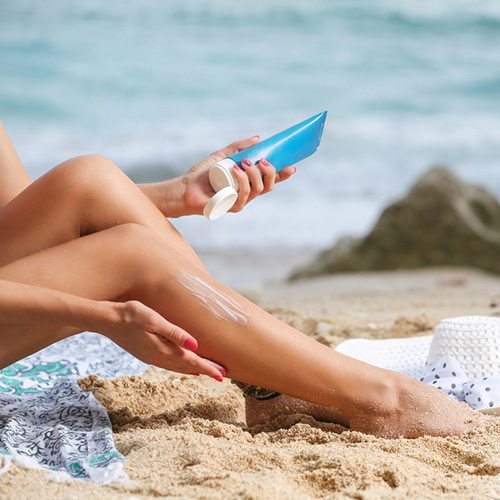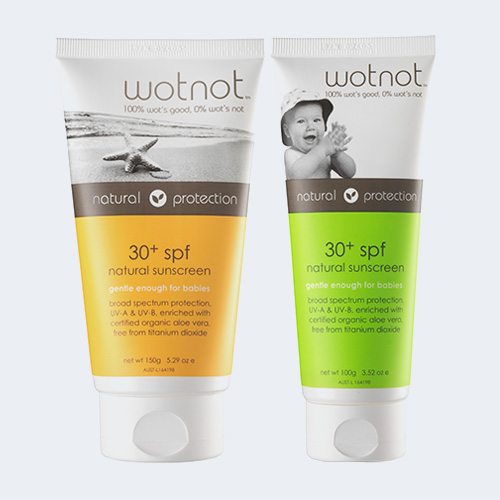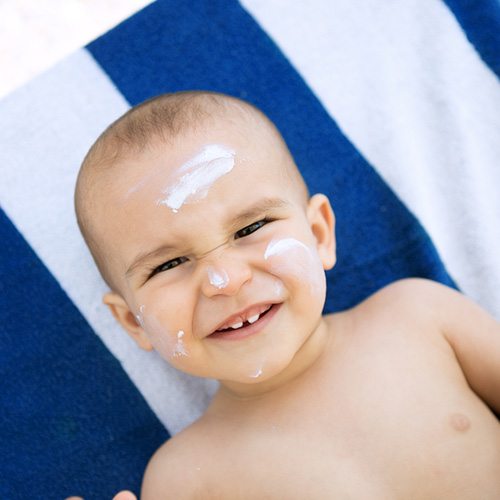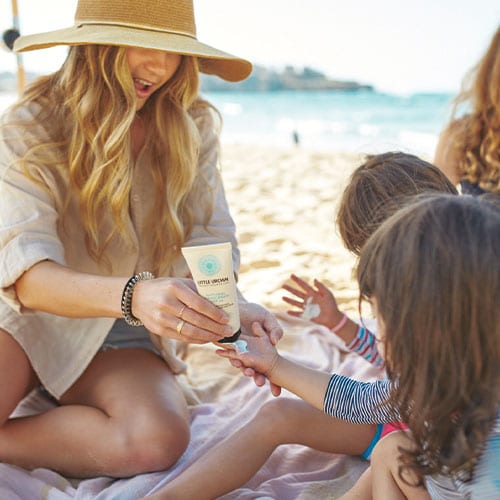
23.09.2020
Why you need to switch to a reef-friendly sunscreen
As Aussies, we’ve been told to ‘slip, slop, slap’ for as long as we can remember. But there’s sunscreen, and then there’s reef-friendly sunscreen.
But as more research emerges, we’re finding that all the sunscreen we’ve worn over the years (all over the world), has caused detrimental effects on our oceans and reefs.
Traditionally, conventional sunscreens are made with an array of chemicals that work to absorb UV radiation and turn it into heat on our skin. Chemicals such as oxybenzone, octinoxate, parabens and 4-methylbenzylidene camphor (say that fast 5 times,) do this job. But when we enter the ocean, river, even when we have a shower – these chemicals wash off our skin and start wreaking havoc. It’s been found that 4,000 – 6,000 tons of sunscreen enter reef areas annually! Unfortunately, these chemicals don’t disperse evenly but accumulate in popular tourist spots (and our Aussie beaches are a big drawcard).

What’s the damage?
In a 2016 study, a team of international scientists found that a common chemical in many sunscreen lotions and cosmetics is highly toxic to juvenile corals and other marine life. Oxybenzone, or BP-3, is found in more than 3,500 skin care products worldwide! (NOAA, 2020)
The study, published in the journal Archives of Environmental Contamination and Toxicology, showed four major toxic effects in early, developing coral: increased susceptibility to bleaching; DNA damage (genotoxicity); abnormal skeleton growth (via endocrine disruption); and gross deformities of baby coral.
The state of Hawaii has even banned all sunscreen products that contain oxybenzone or octinoxate from January 2021.
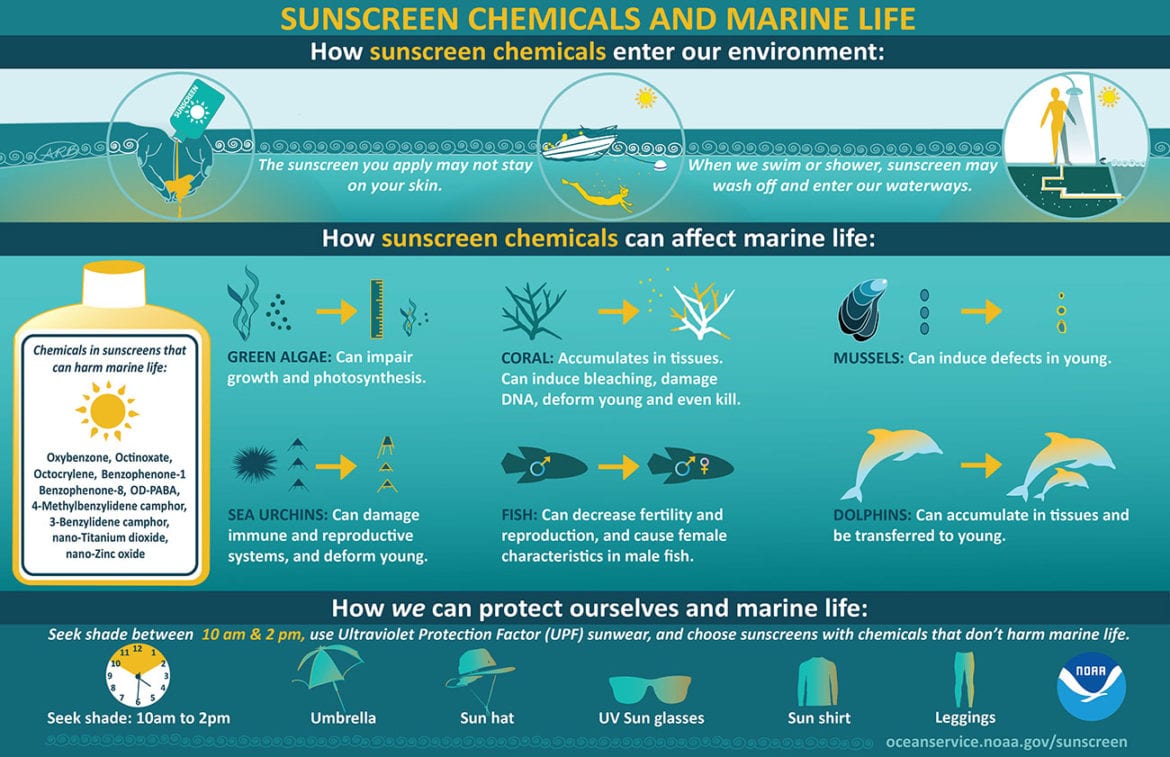
So how do we combat this?
Mineral sunscreens are the best options for not only physical protection from UV radiation in the sun, with active ingredients such as zinc-oxide and titanium-dioxide posing significantly less risk to our marine ecosystems. When washed off in the water, these minerals sink safely to the bottom of the ocean and settle within the sand.
There are some wonderful chemical-free, organic, sunscreen options available, so no need to forgo sunscreen use in an effort to protect corals…we are your go to place to support your skin health.
Read our picks for a Reef-Friendly Sunscreen for every age and skin type.
BONUS POINTS:
- Mineral sunscreens made from zinc oxide and titanium dioxide that do not contain nanoparticles – i.e. look for those labelled ‘non-nano‘
- Go non-toxic, paraben-free and organic when you can!
- Opt for sunscreen labelled as ‘water resistant’, it will be more likely to stick to your skin and not wash off in the water.
- Wear clothing to protect your skin in and out of the water. The less surface area you have to apply sunscreen is less chemicals entering our water ecosystems.
- WAIT 10 MINUTES. Listen to the instructions and let your reef-friendly sunscreen actually settle, instead of rushing to the water and washing it straight off.
How to choose the right sunscreen for you? Click here
Looking for something to work in the swell of the surf or for everyday use?
Disclaimer: use only as directed. Remember to always be sun smart: slip, slop, slap, seek, slide!
Share this post with your friends

